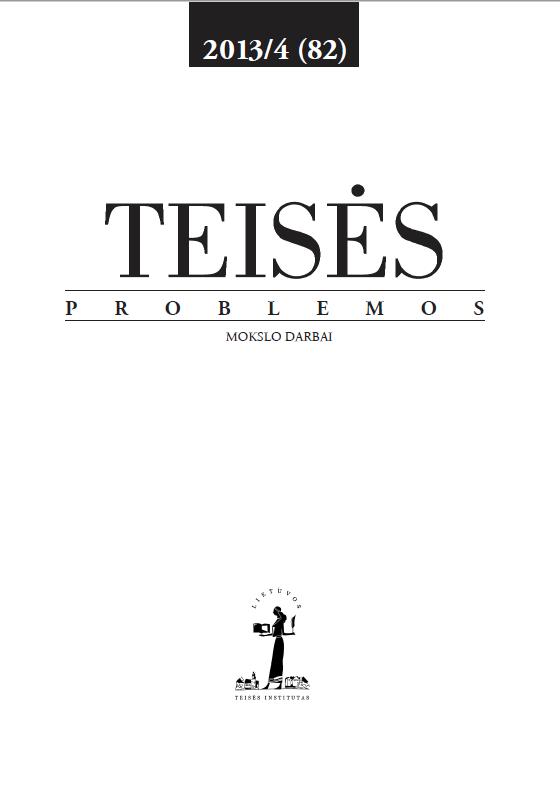Pasitikėjimas politinėmis ir teisėsaugos institucijomis Lietuvoje
Trust in political and legal institutions in Lithuania
Author(s): Milda BurnytėSubject(s): Social Theory, Sociology of Culture, Sociology of Politics, Sociology of Law
Published by: Lietuvos teisės institutas
Summary/Abstract: This article examines the problem of low trust in political and legal institutions in Lithuania. In the context of European countries, Lithuania has one of the lowest rates of trust in political and legal institutions. The lack of trust in public institutions is interpreted in two ways. On the one hand, this indicator may show a critical position and skepticism of citizens towards public authorities. This skepticism facilitates effective control of democratic process. On the other hand, an unfavorable public opinion may have negative consequences for a proper functioning of democratic institutions. The main objective of this article is to investigate the relationship between trust in political and legal institutions in Lithuania and to evaluate the perspectives of increasing trust in the said institutions. To achieve this goal, the data of European Social Survey (2010) is analyzed. The results of empirical analysis show that a moderate relationship exists between trust in parliament, political parties, politicians and trust in legal institutions in Lithuania. However, trust in legal system in Lithuania is most strongly related with trust in police. The relationship between trust in political and legal institutions is detected in both Eastern and Western European countries. Relation between trusts in the said institutions is found in the new Central and Eastern European democracies and in the Western Europe states. At the same time, this relationship is also found in countries with different levels of trust in political and legal institutions. Relation between trust in political and legal institutions indicates that a significant part of society does not differentiate between activities of political and legal institutions. This situation may cause an unfavorable social atmosphere, when the low rates of trust in one public institution may also cause a decrease of trust in other public institutions. Considering relationship between trusts in the said institutions, in order to increase trust in public institutions it is insufficient to limit corresponding policies only by reforms oriented into sudden changes, but it is also necessary to define a long term strategy, which will be focused to make changes in the community culture. Therefore, the best way to increase trust in political and legal institutions is to combine measures proposed by both cultural and institutional theories.
Journal: Teisės problemos
- Issue Year: 2013
- Issue No: 82 (4)
- Page Range: 97-112
- Page Count: 16
- Language: Lithuanian

